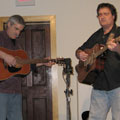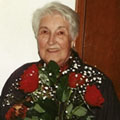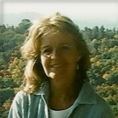From the Mountains to the Shore
There is a house on the Elk River that belonged to my father’s brother, Uncle Lon. When Daddy used to take me to visit him, we’d climb down the treacherous steps to the rocky shore. Instead of heading straight out to the dock, we went underneath it and scooped handfuls of hearty red clay from the side of the cliff and shoreline. We’d take it back home to the farmhouse I’ve grown up in, in North East, Maryland.
As Mom cleaned fresh soft shell crabs over the sink and Dad grilled chicken marinated in his secret recipe, I took over the kitchen table, spreading my clay and bowls of water and newspaper over the wood. I yelled to Dad through the propped-open screened door and talked to Mom’s back as she leaned over the fresh crabs. When it was time to set the picnic table and sit down to eat, sometimes I wouldn’t wash the clay completely off my small hands because I liked the rough red tint it gave them. When we ate the crispy soft shells, their legs sticking out the sides of soft white bread, I’d occasionally crunch down on a grain of that clay.
For a cookout like this, Daddy would add to the menu some of the family’s favorite songs of his, written by him or Uncle Zane or their Aunt Ola Belle Reed, and traditional favorites. This is how I remember summers in my childhood growing up on the rivers in the northeastern part of Maryland.
I’m sure moments like these happened in the Appalachian Mountains, before bluegrass and mountain music came to the Eastern Shore. They probably didn’t have soft shell crabs or grills, but I can vividly picture families sitting around a fire on a cool summer evening, trading melodies and lyrics. They probably had course mountain clay on their hands and feet too, but I’m sure they didn’t make the conscious decision to allow it to stain their palms and soles of their feet. The kids weren’t preserving its moisture with wet plastic bags, but learning to play the handmade instruments that their family members held with such deft hands and sang alongside with such haunting honesty.
When families like this, like mine in fact, the men you are about to hear, came down from the mountains and settled in places like the Eastern Shore, they carried their musical traditions just as closely as the clay on their feet, upon which they would build our houses. With calloused hands, they played songs about their lives and fed their families’ bellies. I feel as though I’m reaching back to them when I listen to Daddy and Uncle Zane sing and play these songs; some of which are generations old and some of which have come to us in recent years.
When we fill our modern homes and backyards with music and food, the atmosphere is just as intimate as a mountain cabin after a humble meal. The musicians show the little ones how to strum and hold a harmony with them. Their voices hearken back to a different time when we didn’t think about acoustics of certain rooms or record labels. Their sounds quiet all others as we feel ourselves sink into a bigger family for a moment. They are here in us today.
I hope you enjoy the unique sounds of a different time and place performed by the very bridges that connect us to Appalachia.
Please welcome Hugh and Zane Campbell …






